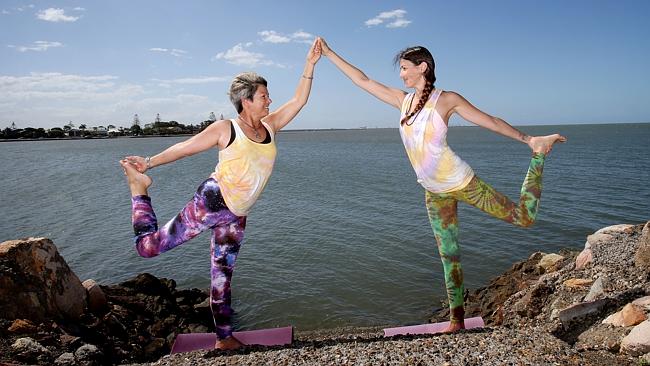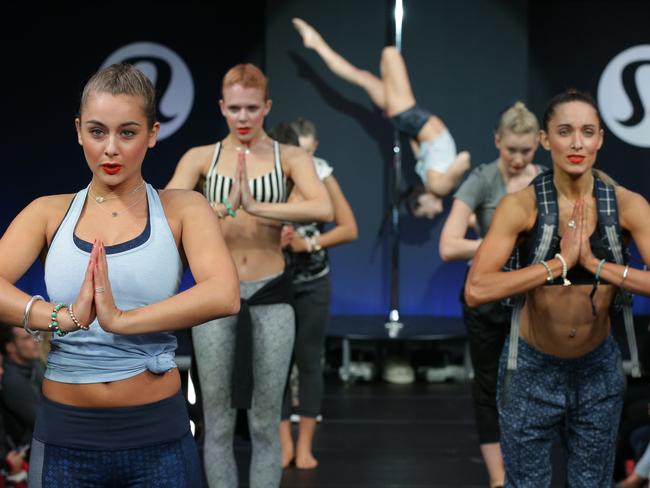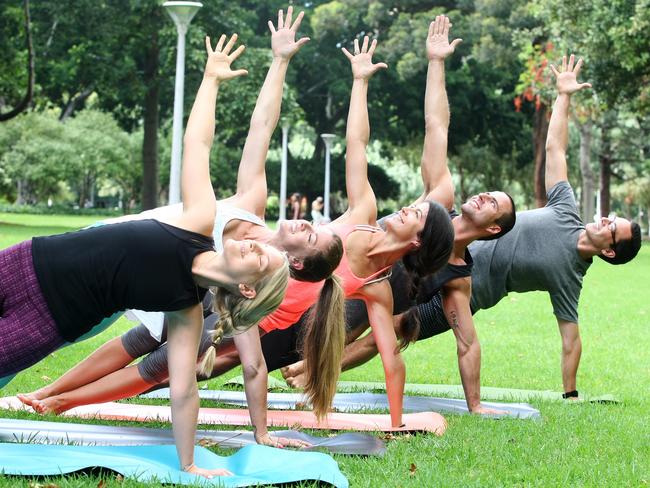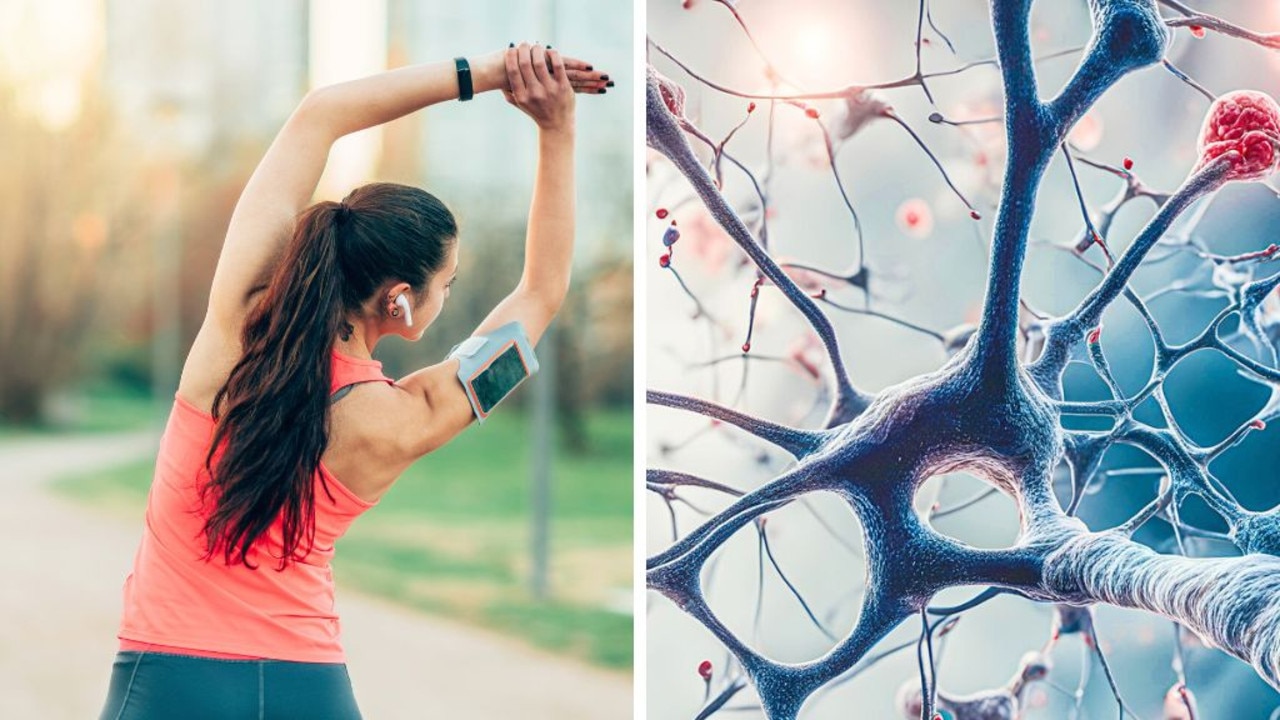The debate over whether India can claim it owns yoga
AUSTRALIANS love yoga. But the way the West has interpreted the practice has annoyed India’s Prime Minister, who wants a cut of the multi billion dollar industry.

AUSTRALIANS adore yoga.
The swarms of Lululemon-clad yoga lovers pounding our inner city pavements in Nike Frees are a regular weekend fixture in our fitness obsessed country.
But our popular Saturday ritual of exercise-brunch-beach-bar bears little resemblance to the quiet, meditative life practised by many yogis in India — the predominantly Hindu nation where yoga originated thousands of years ago.
India’s Prime Minister Narendra Modi isn’t too pleased with how the West has appropriated this traditional Indian practice into a multi billion dollar industry.
Working out (or simply going to lunch) in a pair of trendy $119 yoga pants hardly seems very ‘spiritual’, does it?
Prime Minister Modi wants to have yoga formally recognised as an Indian, Hindu tradition.
Last year he appointed a Minister for Yoga to his cabinet ministry and launched an international marketing strategy called Make In India — a campaign which aims to strengthen India’s manufacturing sector. Its aims include “facilitating investment” and “protecting intellectual property”.
“There is little doubt about yoga being an Indian art form,” Minister for Yoga Shripad Yesso Naik said in January. “We’re trying to establish to the world that it’s ours.”

India’s desire to market its industry of yoga to the world comes after years of ongoing debate over the origins of yoga — and whether its western interpretations are even yoga at all.
In 2008, the Hindu American Foundation (HAH) launched a campaign called ‘Take Back Yoga’, encouraging Hindus to “take back yoga and reclaim the intellectual property of their spiritual heritage.”
The organisation’s CEO Sheetal Shah later clarified the campaign’s aim: “Nobody owns yoga. Our idea was not to claim ownership; it was just to acknowledge that the philosophy behind yoga is based in Hinduism.”
President of Yoga Australia Claire Nettley says she hears this debate come up “every few years”. Her organisation aims to preserve “the true, original foundations of yoga”.
“Because we have so many different varieties of yoga in the west, it really is important to protect what yoga really is. It’s so much more than a physical exercise class.”
Ms Nettley says yoga is about “building a conscious, holistic lifestyle”.
“It’s about becoming friends with yourself. It’s about self awareness, it’s about kindness to the self, really taking care of yourself.
“There are people who approach yoga purely as a physical practice. They come to yoga to get healthy and there’s nothing wrong with that. But that’s just one part of it.”

But Ms Nettley says it is impossible for India to try and patent yoga as their own — “It would be like the Italians trying to patent opera or pizza,” she said.
“How can you define [yoga] when it’s such a personal practice and personal experience?”
If India were to successfully claim ownership of yoga, they would need to secure a “geographical indication” (GI), says George Vuckovic from Intellectual Property Australia.
A geographic indication is a formal acknowledgment that a product’s location is essential to its character. In Australia, GIs can be protected as certification trade marks if they meet the requirements of the Trade Marks Act 1995.
For example, Stilton and Parmigiano Reggiano cheese are trade marked in Australia, because these cheeses come from specific European regions. Parma is another GI protected as a certification trade mark for ham.
“This means that ham cannot be called Parma in Australia unless it is made using a specific recipe and process and produced in a specific part of Italy,” said Mr Vuckovic.
But while these GIs can easily be made about food products — made with particular ingredients in a particular region — the same can’t be said for yoga.
While Prime Minister Modi could secure a geographic indication for yoga within India, it would be “extremely difficult” to do so in Australia.
“Obtaining registration for a certification trade mark of yoga in Australia” could be even harder, if it conflicts “with earlier trade marks or the fact a term is in generic use in Australia.”
“Extensive evidence would be necessary to demonstrate that ‘yoga’ could distinguish, in Australia, the relevant goods or services as possessing characteristics specific to India,” he said.




